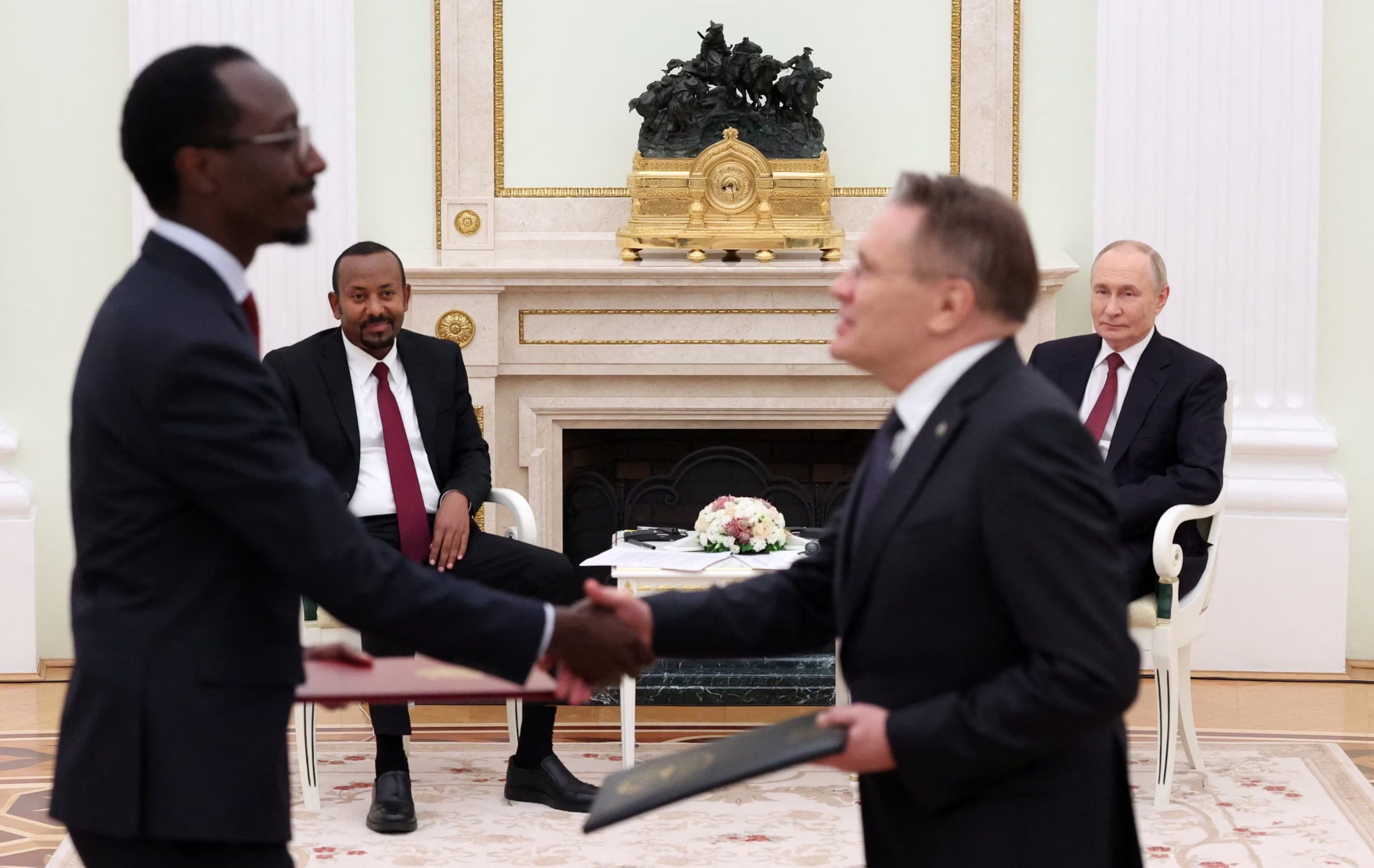
Ethiopia has formalized a partnership with Russia to develop a civil nuclear power plant, marking a significant step in bilateral cooperation between the two nations.
Prime Minister Abiy Ahmed announced on Friday that he held in-depth discussions with Russian President Vladimir Putin covering a broad range of sectors, including energy, agriculture, health, and defense.
“The two countries have agreed to sign agreements to jointly develop a nuclear power plant to provide clean energy for the benefit of society,” Abiy Ahmed said, highlighting the project’s potential to contribute to Ethiopia’s sustainable development goals.
The initiative reflects Ethiopia’s ambition to diversify its energy mix and strengthen its infrastructure in line with the country’s long-term economic plans.
By partnering with Russia, a nation with extensive experience in nuclear technology, Ethiopia aims to ensure that the project meets international safety and technical standards.
The discussions also included cooperation in agriculture and health, areas where both nations have expressed interest in sharing expertise and technology. Defense collaboration was noted as another priority, underscoring the multi-faceted nature of the Ethiopia-Russia strategic partnership.
Ethiopia has previously relied heavily on hydroelectric power, but growing demand for electricity and the need for reliable, low-carbon energy sources have driven the government to explore nuclear options.
Officials stress that the project will adhere strictly to international norms, with environmental and safety considerations forming a central component of planning.
While specific timelines for construction and operation were not disclosed, the announcement signals a commitment by both countries to strengthen ties through large-scale infrastructure and technology projects.
Observers note that this partnership could reshape regional energy dynamics in East Africa, positioning Ethiopia as a potential hub for clean energy innovation.
The agreement is seen as part of Ethiopia’s broader strategy to foster international cooperation while addressing the country’s energy challenges and supporting economic growth.



